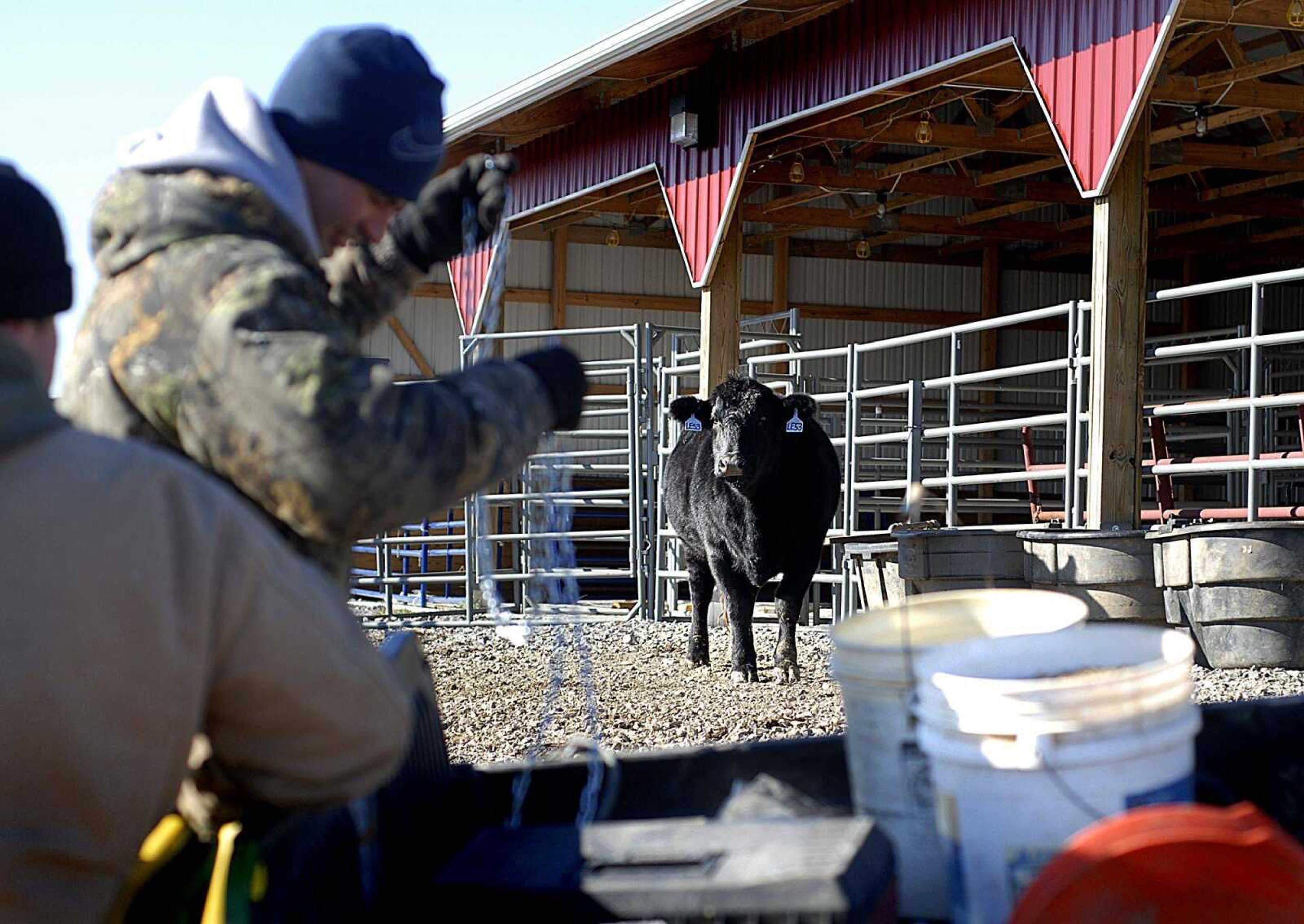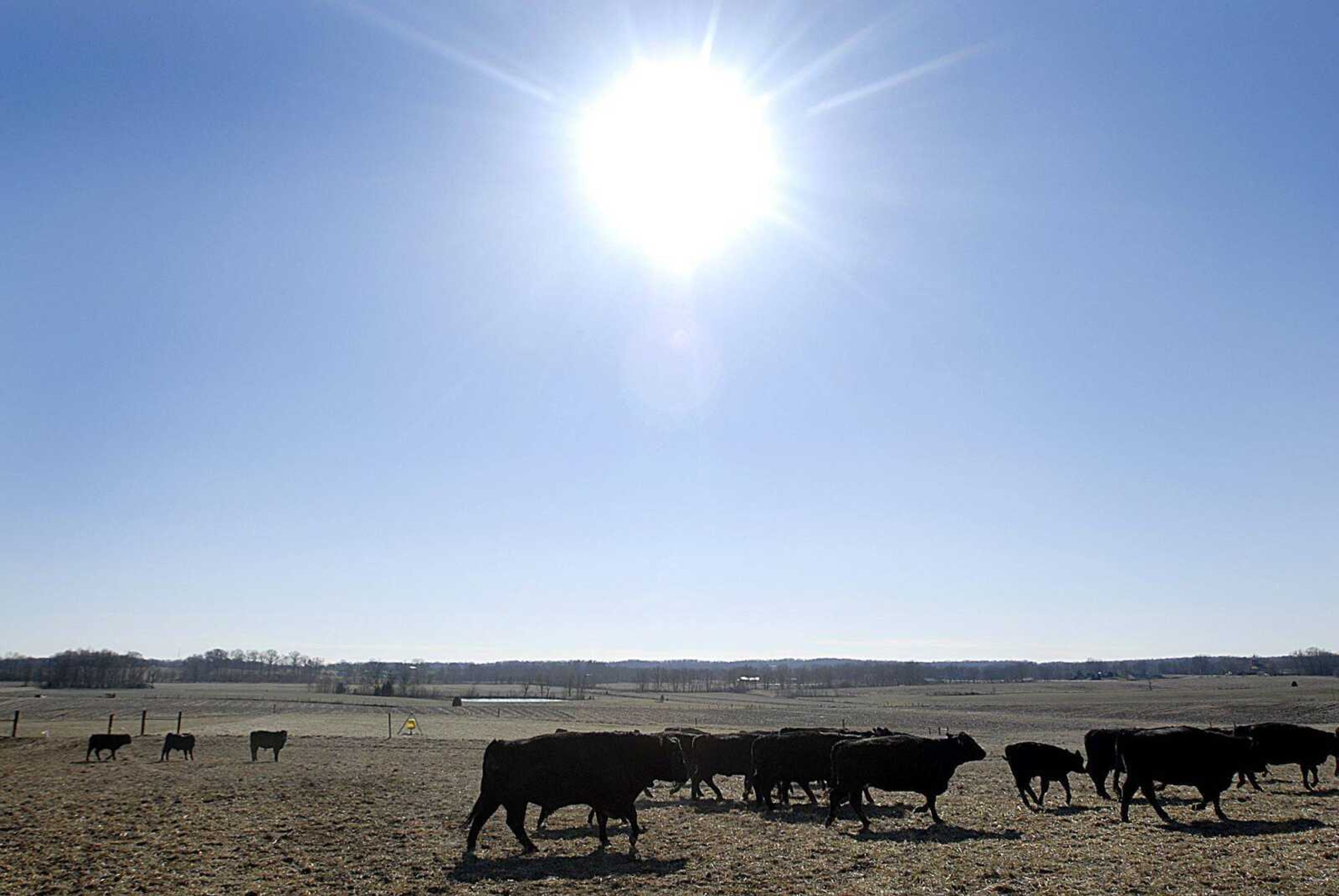Southeast Missouri State University has owned a farm for years, but not like the one the school is preparing to start operating this spring just south of Gordonville.
Where the old farm was devoted almost exclusively to research and hands-on experience with beef cattle, the new farm will research technologies and practices to help improve not only cattle operations but row crop farming as well.
Research in both areas "will be a permanent aspect" of the farm, said Dr. Michael Aide, chairman of Southeast's Department of Agriculture. However, that research will change over time.
Where the old farm -- at the current site of the East Main Street/LaSalle Avenue interchange -- was called a demonstration farm, the new facility will be called the Agricultural Research Center, Aide said.
"The whole idea is we want a community-based research facility that will do two things: We can teach our students and we'll provide ... research based on grower inputs of what they want done," Aide said.

The farm, sitting on 252 acres, was purchased almost three years ago at a cost of about $6,500 per acre by the Southeast Missouri State University Foundation, said foundation director Wayne Smith.
The university's first research project at the farm will begin in earnest in spring, when row crops are planted on a 100-acre plot that uses a new technology to irrigate and drain land called a subsurface irrigation and drainage system.
Using a network of pipes called tiles installed just below the surface of the ground, the system can control the amount of water in a field, either adding moisture or taking it away.
The system has been installed on several local farms by John Lorberg, who learned about it from the University of Missouri Extension's Cape Girardeau County offices and implemented it in his fields a few years ago.
An advisory board made up of Extension specialists, local producers and university personnel will help direct the work that takes place at the new farm. Lorberg will be president of that board.
Researchers are excited about the subsurface system's potential to save energy and water -- less water will be lost to runoff and evaporation and the system will need less pumping power -- and reduce pollution from nutrient runoff. Farm nutrient runoff is believed to contribute to a "dead zone" in the Gulf of Mexico where, during certain times of the year, there's a sharp decrease in the number of some forms of marine life.
The system has also increased yields in the fields where it's already been installed, said Gerald Bryan, director of the University of Missouri Extension in Cape Girardeau County.
Bryan said the farm will also test the system on pasture grasses. Most research on the subsurface systems thus far has been geared toward row crop operations, he said.
Farm manager Neil Hermann said this winter three wells are being installed to supply water for the system. Students are also working to put up fences to create two- to five-acre plots for rotational grazing of cattle. About 20 head are already at the farm, with a herd of 60 by the time the farm starts operating in earnest this spring.
Students are providing the vast majority of the labor to prepare the farm for its future role, giving them extra hands-on experience. Some students will also have management responsibilities, Hermann said, teaching them about running an agriculture business.
Having a research farm in the area will provide an important conduit of information for local farmers, Bryan said. The nearest agricultural research facility is the University of Missouri's Delta Center in Portageville, Mo.
With this research taking place locally, Bryan said farmers can see how the knowledge and technology can directly apply to their own operations in a place that's geographically similar to their own farms.
Even farmers interested in new technology, like Lorberg, are often reluctant to implement that technology in their own fields if the research took place somewhere else, Bryan said.
The implications for research at the farm could be huge for Missouri -- Bryan said 1.2 million to 1.3 million acres of state farmland could be suitable for the subsurface system.
Southeast's farm will also test varieties of pasture grasses to see which work best with the local soils and climate. The nearest research station doing that kind of work is in Columbia, Mo., Bryan said.
The farm won't be the only university property where agriculture and natural resource-related work will take place. The new technology park in the area of the new Interstate 55 interchange will likely attract companies doing research into new applications for products like soybeans and rice and environmental preservation and restoration, said Dennis Roedemeier, president of the Missouri Research Corp., the university's economic development arm.
msanders@semissourian.com
335-6611, extension 182
Connect with the Southeast Missourian Newsroom:
For corrections to this story or other insights for the editor, click here. To submit a letter to the editor, click here. To learn about the Southeast Missourian’s AI Policy, click here.







